The textile arts of Asia span a huge geographic area and cover a remarkable array of cultures, components, and forms. Always a favorite among travelers, Asian textiles have been collected in the United States and Europe since the 17th century. Due to their delicate materials, complex construction, and often large size, Asian textiles require special attention.
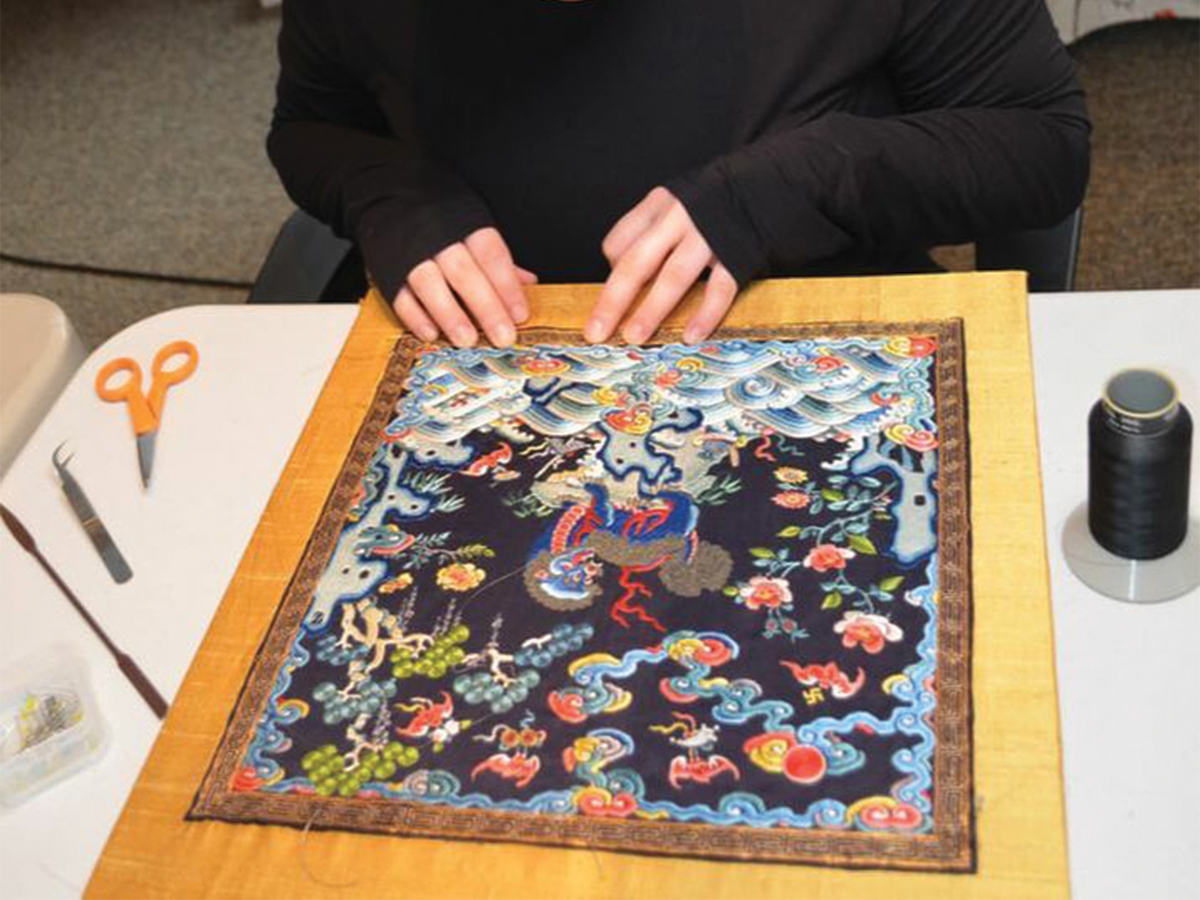
Detailed hand work.
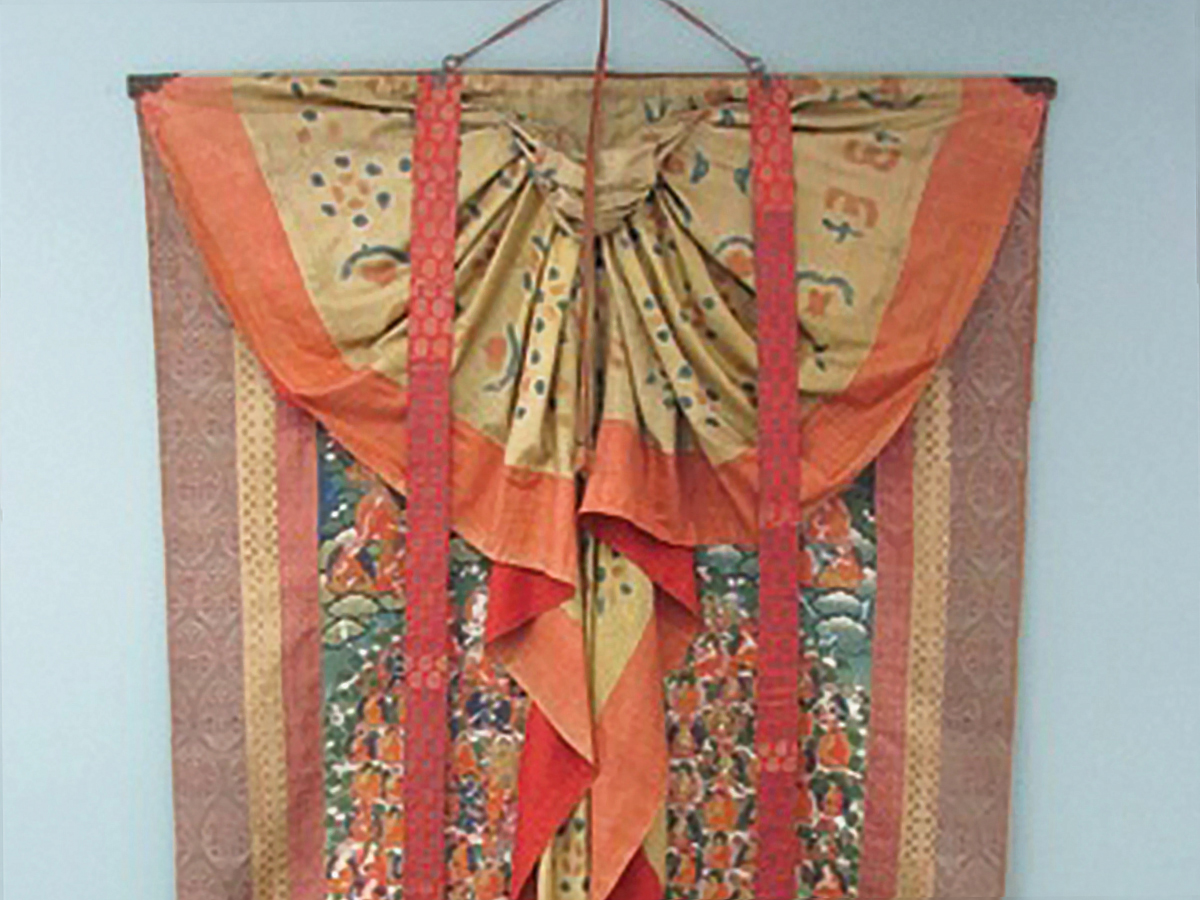
Images courtesy Mead Art Museum, Amherst College.
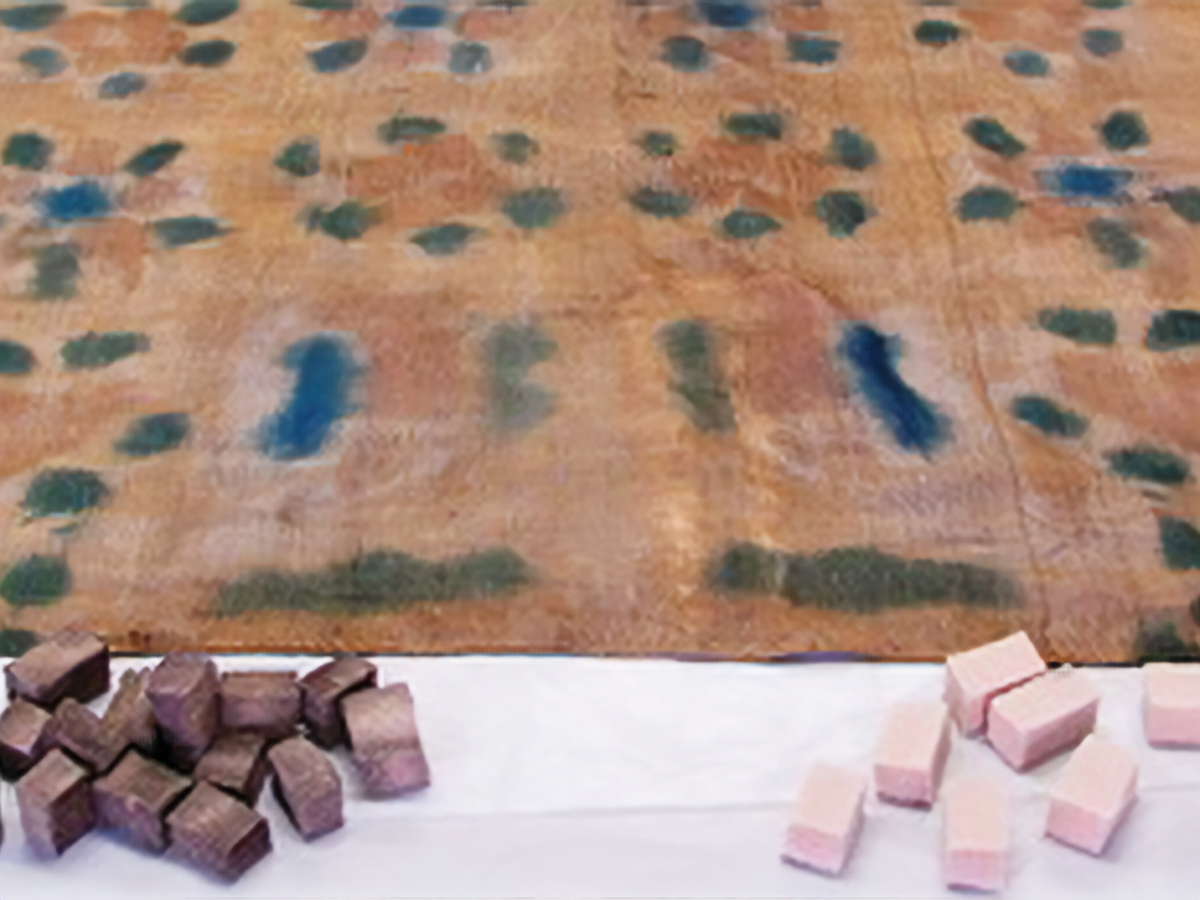
Surface cleaning before and after.
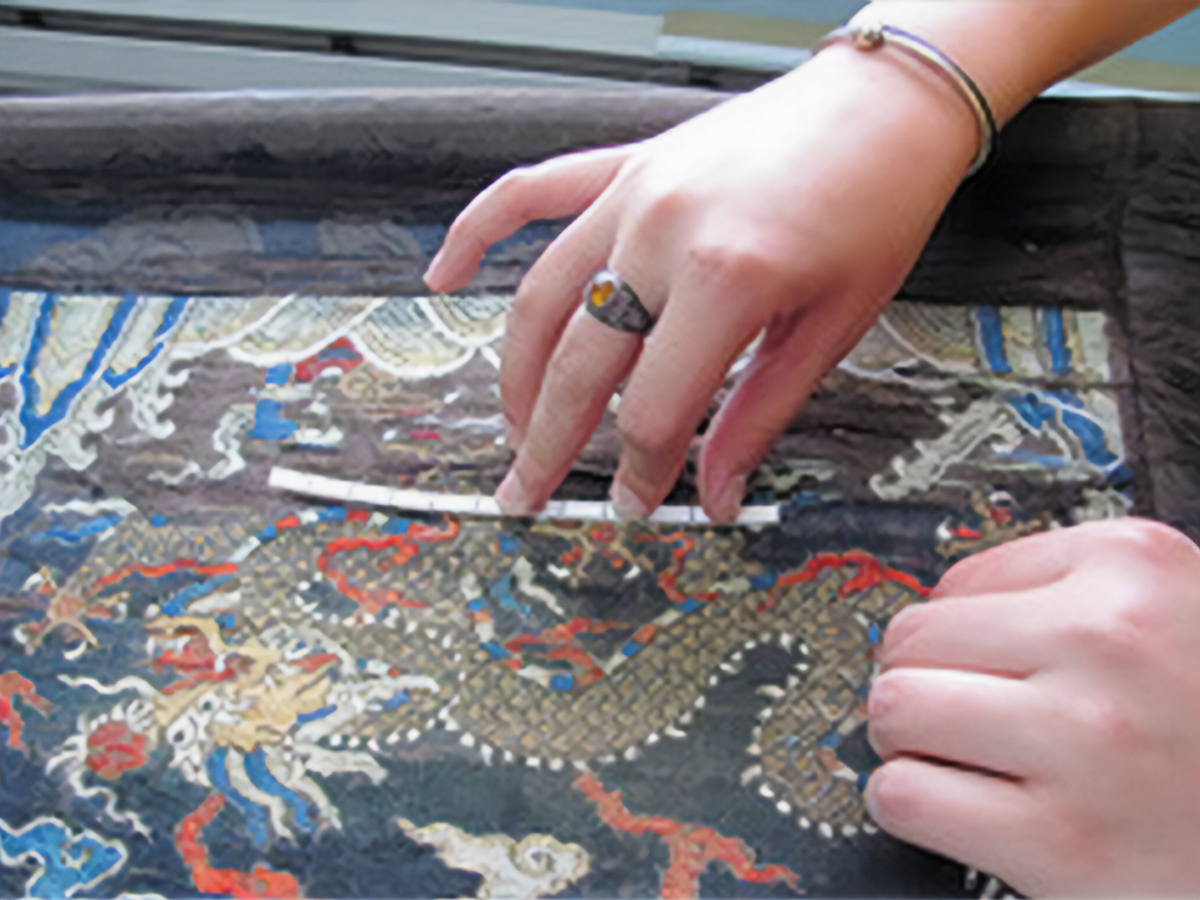
Stitching metal-thread silk brocade.
Featured Textile Story
Japanese Silk Kimonos
This private collection of Japanese silk kimonos is only occasionally displayed in order to protect the fragile silk and paint. Museum Textile Services created a photographic catalog of the kimonos, surface cleaned them, and then packed them in archival storage boxes. They are now kept in a climate-controlled room in the owners’ Florida home.
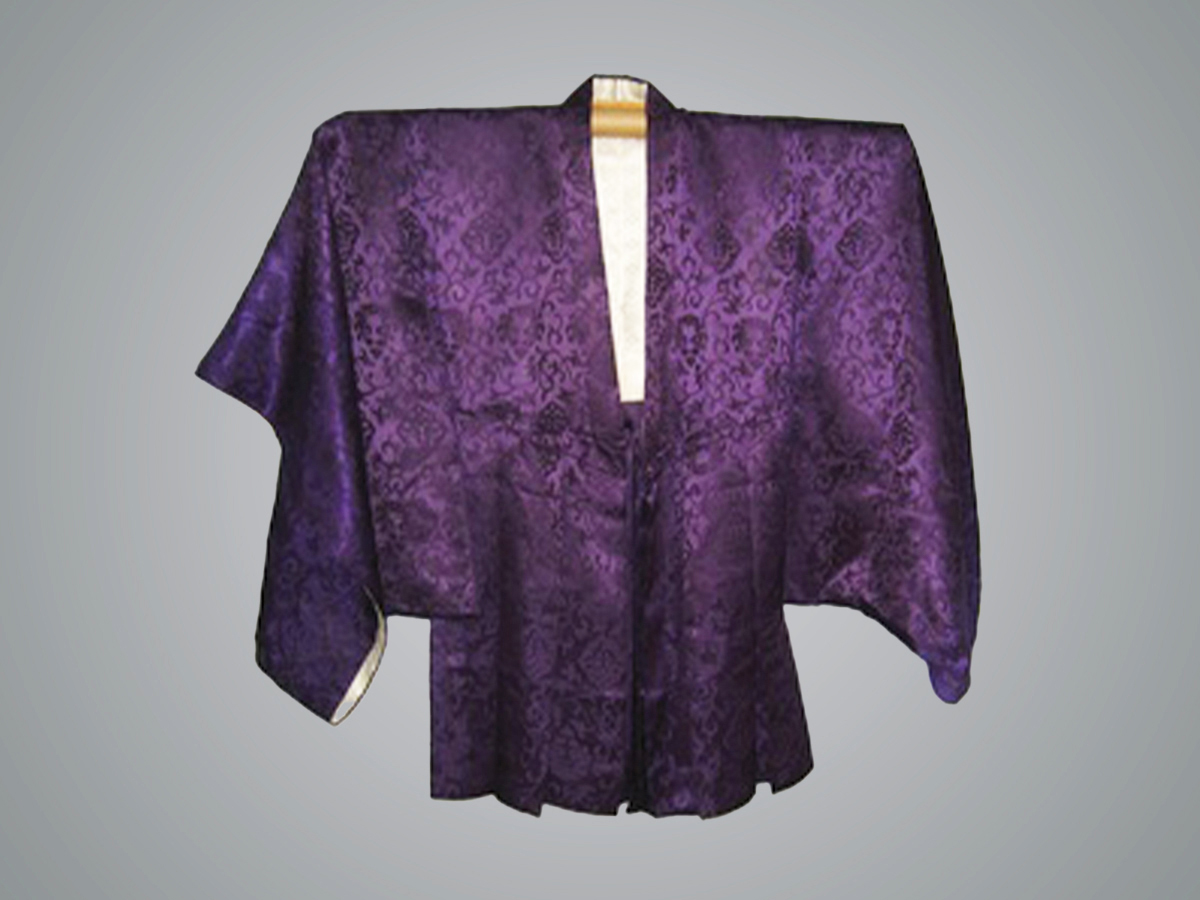
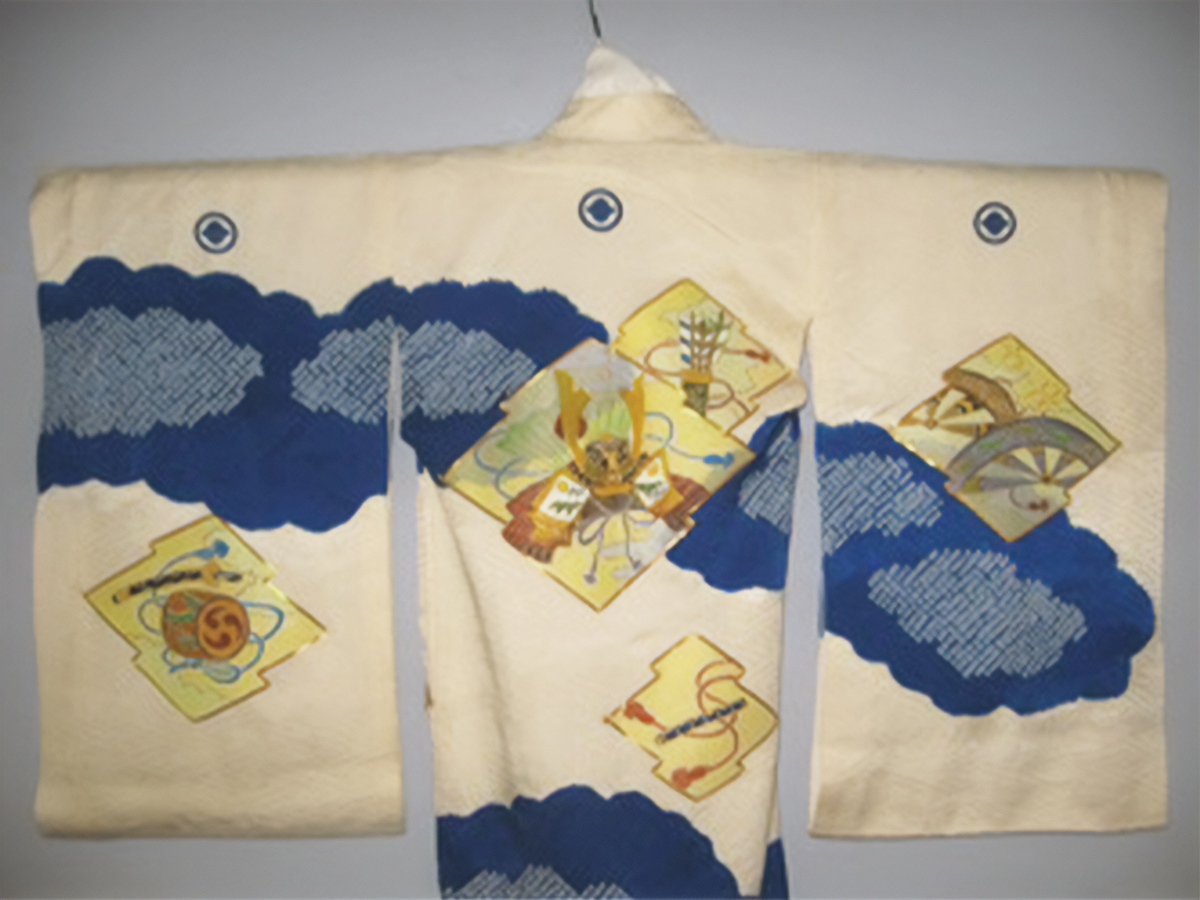
Featured Textile Story
Asian Suits of Armor
Museum Textile Services also cleaned, repairs, and mounts Asian suits of armor. This privately owned Samurai armor consists of a helmet, or kabuto, in the suji-bachi style featuring a maedate, or frontal crest, of the wearer’s clan. Within the helmet is a menacing ho-ate (half-mask) which rests above the dō (cuirass) with attached sode (shoulder guards), kote (sleeves), and a kusazuri (skirt). The shirt is made in the sugake style, using double rows of lacing between intervals. The set of armor most likely dates to the Edo or Tokugawa Period (1603-1868).

